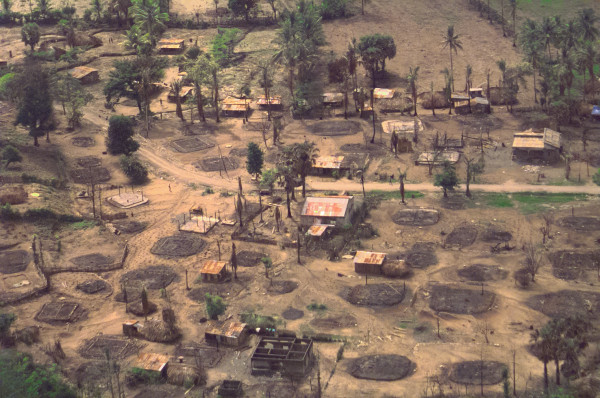Living with the effects of Timor: Former Army Captain Jamie Lynch
Living with the effects of Timor: Former Army Captain Jamie Lynch
Former Army Captain Jamie Lynch’s deployment to Timor-Leste in September 1999 was also his last. His experiences in Timor-Leste have had a deep and profound impact on nearly every aspect of his life since.

Jamie Lynch with his daughter Ashley Lynch, 2020.
Jamie deployed as second in command of Victor Company, 1st Battalion, Royal New Zealand Infantry, the first New Zealanders to join International Force East Timor. Victor Company joined Australian infantry to secure Dili, the capital, and then they were sent to secure the city of Suai.
Suai was the site of one of the worst atrocities during the post-referendum violence, when 200 people were murdered in the Suai Church Massacre on 6 September, 1999. By the time Victor Company entered Suai the area had been mostly destroyed and 250 militia members were believed to still be in the area.
“The massacre happened three or four weeks before we got there. I was really angry about it – I was angry for years but I didn’t know it until I started therapy.
“There were the bodies of two cousins in the river, which was about 600 metres away from where we were. You could smell them when the winds came up. There was a woman who had been raped and was screaming. Suai was totally trashed.”

Destroyed buildings in Suai, Timor-Leste 1999.
Jamie’s company secured Suai while working in temperatures over 40 degrees and wearing body armour last used in winter in Bosnia and Herzegovina. Each soldier was using 18 litres of water a day for drinking and cooking. The stress of this environment was overwhelming. “In four years of officer training I had an hour and a half on stress management. So I had the impression that if I was stressed I was failing in my job as an officer.”
Jamie had sleep issues caused by work before deploying, which became worse when he was in Timor-Leste. He was working from 4am to 8pm every day and when he did get to sleep his bed was near a window that was exposed to a nearby track, “people walking down the track could easily see me and shoot me”. This affected his sleep and left him feeling vulnerable and anxious. The stress and anxiety profoundly affected his work and relationships within the company.
In December 1999 Jamie was relieved from duty and redeployed to battalion headquarters in Dili. He was assessed by a psychologist, who gave him some stress-coping techniques. He was then deployed back to Victor Company, but he still struggled to cope and was redeployed again to battalion headquarters. However, he was getting just two hours sleep every two days and was suicidal because of the profound sense of shame and failure that he felt.
He was evacuated in January 2000 under medical supervision, during which he experienced a severe reaction to medication, which caused muscle spasms.
“The last thing I remember about being in Timor was being rushed into the emergency tent and my mate, who was a nurse, putting the mask on me saying, ‘hang on Jamie.’” He was transported to Darwin while unconscious and woke 24 hours later in hospital.
When Jamie returned to New Zealand he was posted away from his unit. “To be out of a unit that you’ve served with and given everything to, it just destroyed my career with the infantry. I was made to feel that everything was my fault, made to feel like a failure, that I couldn’t do anything. I felt so much shame and that carried on for years. I had no confidence in myself.”
On Anzac Day 2000 Jamie’s Company Quarter Master Sergeant, Staff Sergeant Billy White, was killed in Timor-Leste when his Unimog left the road and crashed 30 metres down a bluff. Then in March 2001 Jamie’s best friend, Major John McNutt, was killed in Kuwait when his observation post was hit by explosive ordnance. Both of these deaths greatly affected Jamie and compounded the stress that he already felt. He left the Army in January 2004.
“Mentally I was just stuffed. I struggled to sleep anywhere other than home, and was fearful about travelling because of that. I was scared to commit to a relationship because you have death and dying around you. It affected everything.”
Jamie’s life was an endless cycle of anxiety, stress, and shame, which stopped once he started receiving treatment in 2012. A mate told him go to Veterans’ Affairs and Jamie thought that he might get some free counselling sessions. Instead, he was assessed by a psychiatrist.
“I’ll never forget him telling me, ‘All your troubles, everything that’s been going on, comes from Timor. Some of those stories that you told me, I’ve heard before.’ That’s when it dawned on me that I wasn’t the only one suffering. I thought it was me being a failure that caused everything, that it wasn’t anything to do with Timor.”
He started receiving psychotherapy funded by Veterans’ Affairs. Though he improved a lot through treatment, something was holding him back in his sessions. This culminated in a breakdown in 2017.
“I didn’t realise how much anxiety affected my life. It affected my sleep, my confidence, even going to a gym. It also affected sex, travelling, eating, and my ability to work.”
His doctor sent him to the Emergency Department of his local hospital and he was given five days of respite care. His Veterans’ Affairs case manager contacted him while he was there and set him up with Weekly Compensation, which provides financial compensation to those who can’t work because of a service-related condition. “I would have gone bankrupt otherwise. That gave me the breathing space to get better. Having a guaranteed income, I don’t have that stress, I don’t have that anxiety.”
He has received a range of psychotherapy treatments that have addressed different aspects of his trauma and anxiety. This includes counselling, which has enabled him to understand his feelings and talk through issues, Cognitive Behavioural Therapy, which has enabled him to work on solutions, and meditation, which has calmed his mind.
After eight years of treatment and three years of income support from Veterans’ Affairs, Jamie is amazed at how far he has come. “Each time I look back, to see how much I have improved, is phenomenal. I keep moving forward, the old fears come back, and I deal with them.
“When I look at my life now it’s so much better – I’m still quite fit, I have a good job, I have a partner who is absolutely fantastic, my daughter is living with me full-time, and I’m more successful in my business.”
“People need to realise that it doesn’t matter whether you were folding blankets, or a cook, or on the front line – each deployment is different for everyone. We don’t talk about it and there’s this sense that if you are affected by it you’re a failure.”
“Getting treatment has definitely been a game changer and made my life so much better.”
If you’re serving in the NZDF and need help
The Defence Health Directorate offers mental wellbeing support to all personnel serving in New Zealand and deployed overseas. They also offer 24/7 counselling support for serving personnel and veterans through the NZDF4U helpline.
NZDF4U(external link) — 0800 693 348
If you’re no longer serving and need to talk
Need to talk? 1737(external link) — 1737 — phone or text a trained counsellor
Lifeline Aotearoa(external link) — 0800 543 354
Samaritans(external link) — 0800 726 666
